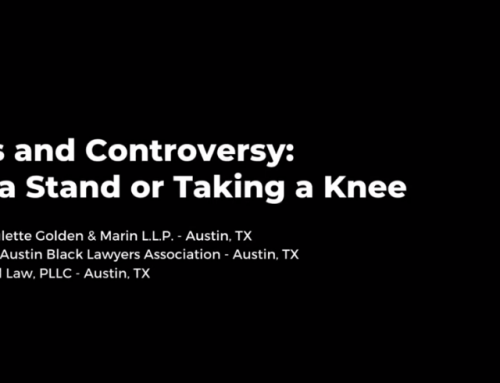An Austin couple, (the “Couple”) was sued for defamation and business disparagement after leaving several one-star reviews about a restoration company, (the “Company”) on websites including Yelp, Facebook, and Google.
Even though the reviews had been removed, the Company moved forward with a lawsuit in Travis County and sought damages of between $200,000.00 and $1,000,000.00, as well as an injunction to prevent the Couple from posting any further reviews.
The Company alleged that the Couple had intentionally tried to damage its online reputation. The Company also requested punitive damages against the Couple because the reviews had been re-posted whenever they were removed.
The Couple retained Pete Reid Law after learning that Pete Reid had won one of the first cases in Texas to be decided under the 2011 Texas Citizens Participation Act, also known as the “Anti-SLAPP” statute.
Pete Reid immediately served the Company with requests for production of specific documents that the Company would likely need to support its case, including proof of damages and evidence of lost customers.
When no such evidence was produced, Pete Reid drafted and filed a Motion to Dismiss the lawsuit, and set the motion for a hearing on September 20, 2018.
At a hearing before Judge David Phillips in Travis County District Court, Pete Reid argued that the lawsuit should be dismissed, in part because the Couple were merely exercising their right of free speech, and that the Company could not establish by clear and specific evidence a prima facie case for each essential element of its claims.
In response, the Company argued that the motion was frivolous and that the Texas Citizens Participation Act did not apply to this case. The Company also argued that it had been harmed because prior to the Couple’s reviews, it had a perfect rating on Yelp, Google, and Facebook. The Company argued that during the time the reviews were online, the amount of traffic to the Company’s website was down, and overall business sales were down.
After considering all of the arguments and evidence before the Court, Judge Phillips issued a decision in Pete Reid Law’s favor, dismissing the Company’s lawsuit. Judge Phillips determined that the Texas Citizen’s Participation Act did apply because the lawsuit was based on, related to, or was in response to the Couple’s exercise of the right of free speech.
Judge Phillips stated that the Company had not been able to establish a prima facie case for defamation or business disparagement, and that therefore the motion to dismiss should be granted.
Judge Phillips also ruled that the Couple were entitled to an award of their court costs, reasonable attorney’s fees and other expenses incurred in defending against the Company’s claims.
The case was dismissed, and the Company was ordered to pay all of the Couple’s attorney’s fees and costs within 30 days.






